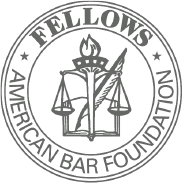Moving right along, this week’s focus is on Item #3 of the Franchise Disclosure Document; Litigation involving the company. The purpose of this line item is pretty straightforward. It reveals whether or not the franchise is suing, being sued, or has a history of doing either.
What You’ll Learn About:
- Potential claims against the franchisor;
- Litigation involving the principals or directors recognized in Item #2; and
- Suits filed by the franchisor, including (Suits filed against entities potentially infringing on the brand; and Suits filed against franchisees not operating in accordance with the company’s standards and agreements.).
As a whole, Item #3 is a comprehensive timeline of any and all litigation involving the franchise, its owners, directors, and franchisees, for the past 10 years.
Why is this important?
For obvious reasons, you don’t want to invest in a franchise with legal problems. Pretty clear-cut.
There are essentially three different kinds of litigation to look for when reading this section of the FDD:
1. The franchisor as a defendant;
2. Legal disputes with franchisees; and
3. Suits filed against other entities.
First, be cautious of any litigation involving the franchisor as a defendant; especially public disputes. Even if they win in court, a publicized lawsuit could permanently harm the company’s brand and reputation. Additionally, if the franchisor is involved in a pending class action, beware! A large number of lawsuits can mean bankruptcy for businesses win or lose. It could also be an indication of serious flaws in the company’s systems, procedures, foundation, operations or leadership.
Next, if the franchisor has a history of lawsuits and disputes with franchisees, then it could be a red flag that they don’t quite have things in order. Constant legal troubles with franchise investors means that they aren’t providing the behind-the-scenes support they promised; which is the entire purpose and advantage of a franchise! Look for a good history and working relationship between franchisor and franchisees that doesn’t include a background packed with legal disputes.
Additionally, if Item #3 shows any litigation wherein the franchisor is suing a franchisee for non-compliance, pay close attention. Depending on the franchise and the particular scenario, it could be a good thing. There are instances where a rogue franchisee operates in a way that necessitates litigation. Although, I caution that this is usually not the case. Litigation instigated by the franchisor should be utilized as an absolute last resort. And, certainly, if you notice several franchisor-instigated lawsuits, dig deeper. Find out the who, what, when, where, and why, as it is usually a bad sign if the franchisor is consuming its time, money and efforts in suing its own franchisees. Too many lawsuits of this nature could mean big problems for the franchise as a whole. But if it’s minimal, then it could simply mean that the franchisor is strict about compliance and protective of their brand, image and operations.
Finally, if the franchisor has any pending lawsuits against other entities potentially infringing on the brand, then you might want to seek legal counsel and wait it out. If the franchisor loses such a case, it could mean rebranding, and you don’t want to jump on board in the middle of such a crucial transition before seeing how it’s going to play out.
The bottom line is that item #3 represents the strength of the franchisors legal foundation. Minimal lawsuits typically mean a reliable legal foundation and more stability for you as an investor.
Next week, we’ll review Item #4, covering bankruptcy.









